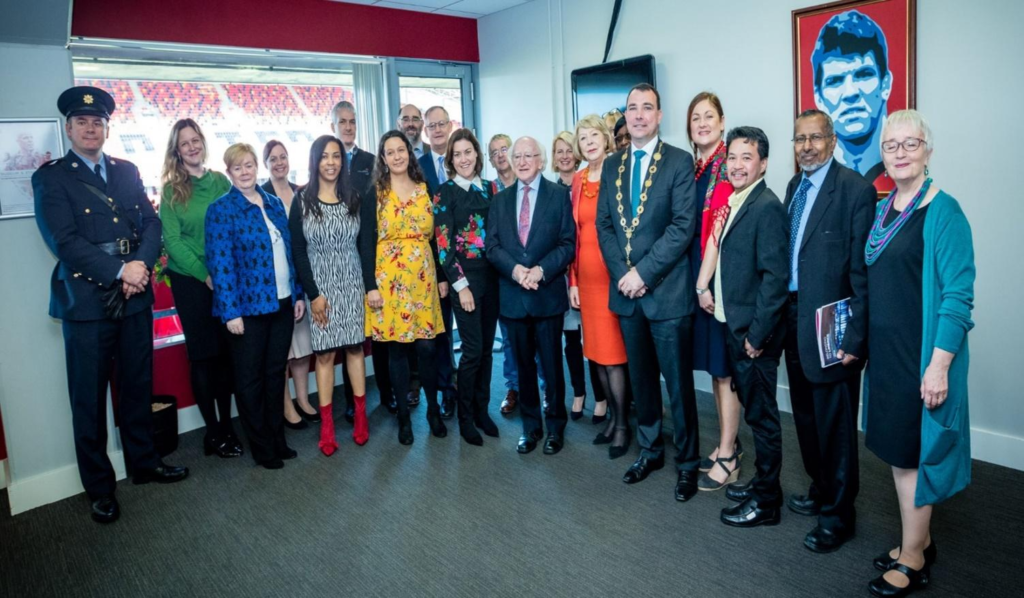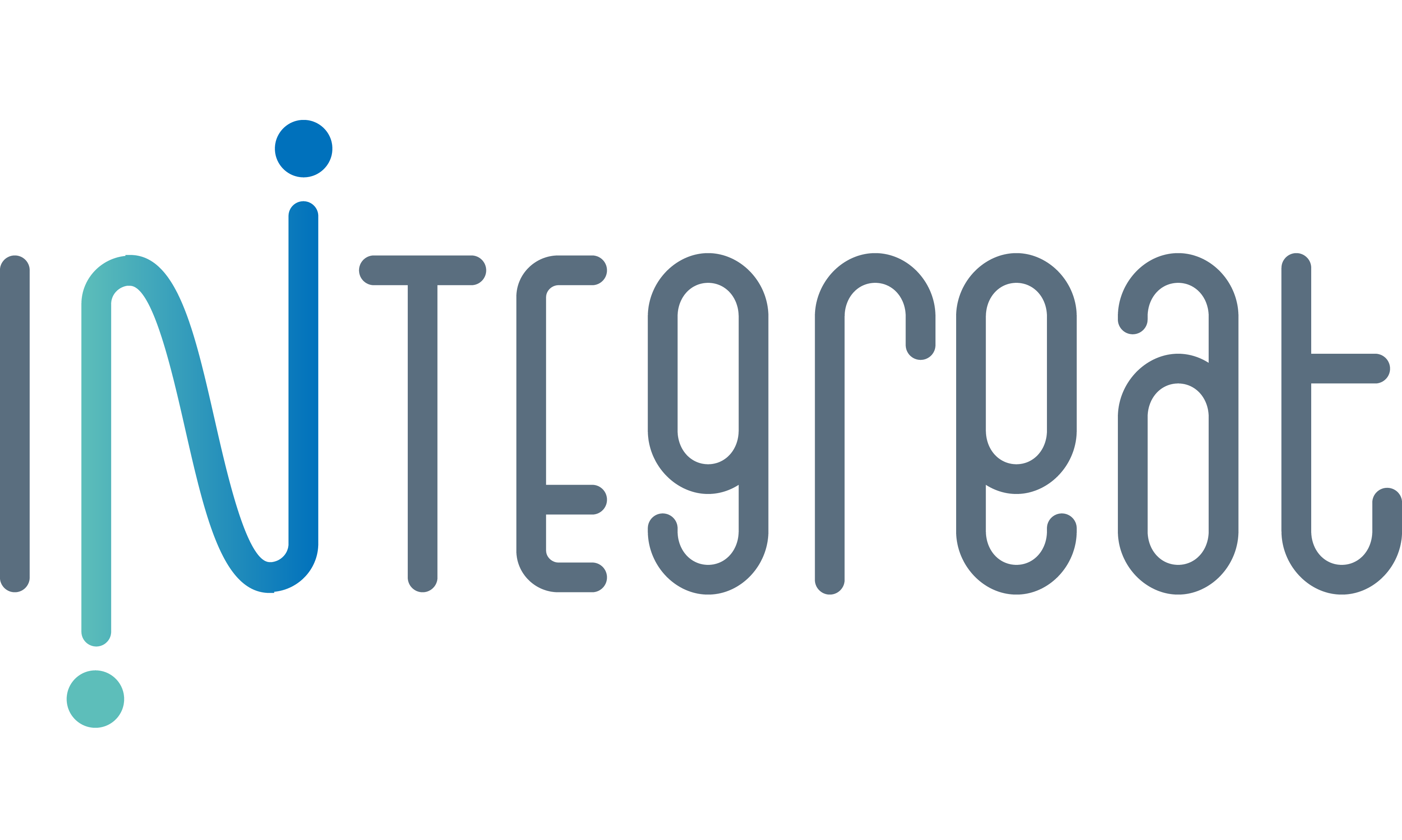Written by Limerick City and County Council
The Integration Working Group (IWG) brings together public agencies and voluntary and community organisations in Limerick to focus on the needs of people with a migration background and promote integration with host communities in Limerick. Migration into Ireland has changed in many respects since the IWG was set up. The flows of migrant people seeking work opportunities has varied with the economic cycle. New challenges have emerged with increased numbers of migrants seeking international protection arriving from various parts of the world. Linked to these developments, the IWG is in a process of review of how it defines its role and remit and structures in place to support newcomers
Background: Establishment of the IWG
The IWG was set up in 2007 with the purpose to develop and oversee the implementation of integration strategies for Limerick. This initiative was linked to local government where the inter-agency City Development Board set up a Social Inclusion Measures Group to drive a social inclusion agenda for the city. Social inclusion measures were addressed to different social groups – people from disadvantaged areas and disadvantaged socio-economic backgrounds, Irish Travellers, migrant people and other groups. The Integration Working Group (IWG) emerged from this Social Inclusion Measures Group initiative. The focus of the IWG, however, was and remains on the migrant population.
President of Ireland, Michael D Higgins, Cllr James Collins Mayor of the City and County of Limerick with IWG Members during launch of The 3rd Limerick Integration Plan Belonging to Limerick

The Integration Working Group has a membership of 19 organisations from the public and voluntary and community sector. The public sector organisations are Limerick City and County Council, the Health Services Executive, Limerick and Clare Education and Training Body, Department of Social Protection, third level education colleges in Limerick and An Garda Síochána (the police service). The voluntary and community organisations are: the Jesuit Refugee Services and Doras which are migrant support and advocacy organisations, the three Local Development Companies in urban (PAUL Partnership) and rural Limerick (Ballyhoura Development and West Limerick Resources), Midwest Migrant Community Network, cultural groups from specific migrant countries (Filipino, Polish and African), the Mid-West Inter-faith Network, Limerick Youth Services, Limerick Volunteer Centre, Limerick Sports Partnership and a local community group, Our Lady of Lourdes Community Council.
The IWG and Migrant Integration Strategies Limerick
The IWG has been the structure driving the preparation of integration strategies in Limerick and overseeing their implementation since the first of the strategy or plan was developed in 2010. To date, there have been three strategies:
- Integrating Limerick: Integration Plan 2010-2012
- Towards intercultural Limerick: Integration Plan 203-2016
- Belonging to Limerick: Integration Plan 2018-2022
The preparation of the most recent Integration Plan (2018-2022) was informed by a process of data analysis to develop a profile of the migrant population, needs analysis based on qualitative research, mapping service provision for migrants, policy review and stakeholder consultations. The strategy was formally approved by Limerick City and County Council in 2018. The strategy was launched in Limerick by President Michael D. Higgins. The launch by President Higgins was attended by representatives of all organisations in the IWG, other invitees and migrant communities. It included talks and music from migrants, celebrating the cultural diversity of Limerick. This event demonstrated the importance from the perspective of migrant people of belonging to the host community and Limerick while the launch by the President gave the strategy high profile and status.

President Michael D. Higgins launching of The 3rd Limerick Integration Plan Belonging to Limerick.
The aim of Belonging to Limerick is “to promote a vibrant, inclusive and inter-cultural Limerick city and county in which all residents belong and are equally valued, regardless of their nationality, religion or ethnic background”. The strategy emphasises “belonging” to place and “diversity advantage”. The latter sees migrants as “resources for local economic, social and cultural development” and not only as “vulnerable groups in need of supports and services”. In the global context of attracting “talent” to labour markets and pressures arising from ageing societies in the most developed parts of the EU, this is even more important in 2023 than it was when the strategy was first launched in 2018, post the Great Recession. The diversity advantage perspective emphasises that Limerick benefits from the skills, capacity, languages and new approaches / innovation and enterprise introduced to the local economy and society with the settlement of migrants.
The thematic areas within Belonging the Limerick are:
- Language, education and employment
- Information and advice
- Equality of access to public service
- Cultural awareness and anti-racism
- Active community participation.
Actions delivered under the strategy have included:

- Inter-cultural training for local authority staff and frontline services staff
- Collaboration between education and training services to improve access to language training and education
- Supporting / promoting migrant participation as voters and candidates in local elections. In 2020, the first Councillor with a migration background was elected to Limerick City and County Council
- Inter-agency cooperation in providing services to migrant residents in Direct Provision Centres in Limerick including family, child and parenting supports, social and cultural activities and employment services;
- Anti-rumours and awareness-raising activities in schools;
- Migrant participation in festivals and events including Africa Day, Riverfest and St. Patrick’s Day parade;
- Coordinated inter-agency response to vulnerable migrant workers and families during Covid-19 including food distribution at local community level;
- Public anti-racism campaigns in 2021.
Launch of Limerick Integration Plan Belonging to Limerick.
Challenges: Resources, Capacity and Changing Needs
The IWG and migrant integration continue to have strong support from the local authority, politically and in the executive. As migrant issues evolve and the context is changing, the needs change and the structure of the IWG itself faces some challenges.
Resources to support the work of the IWG has been a challenge from the start in that a dedicated staff resource / secretariat and core funding have not been available to it to date. The functioning and delivery of actions under the Integration Strategy have been the responsibility of the different agencies involved in the IWG and reliant on their commitment and capacity to put resources (human and financial) to it. Funding sources have been available for specific one-off actions such as membership of Inter-cultural Cities and Region, some integration plan activities such as inter-cultural week and Limerick Africa Day celebration (funding from Irish Development Aid funds). Migrant issues and multi-culturalism have also been reflected in other mainstream activities such as Learning Limerick. This is also a multi-agency initiative in place since 2010. It promotes lifelong learning for all. Limerick is part of the Irish Network of Learning Cities and a UNESCO Learning City Region.
With better understanding of the complexity of these issues – connected to the reasons for migration to Ireland, the social and economic circumstances of people with a migration background including education levels and qualification, labour market orientation and capacity, language, family structure, age, health-related needs, cultural practices etc. – a restructuring of the IWG is being considered. For instance, the IWG may become an umbrella structure where all the key agencies are represented but they focus on overall strategy and not on operational aspects of plan implementation. In relation to practical and operational issues, Working Group sub-structures could be created to focus on specific issues and how best to implement actions in support of integration.
The voices of people with a migration background also need more attention. The setting up of a regional Migrant Forum is now being considered as an important part of the structures needed going forward. This is to ensure that migrant voices are heard in the formulation of strategy and plans, and migrants themselves are involved in designing actions addressed to them and their needs.






